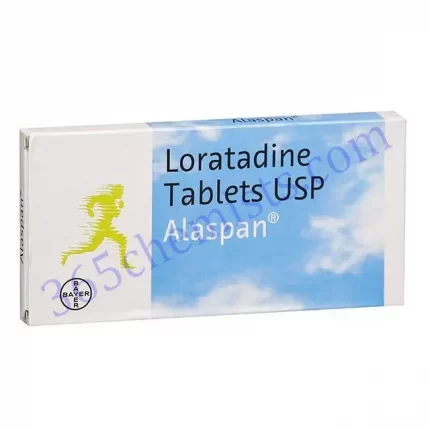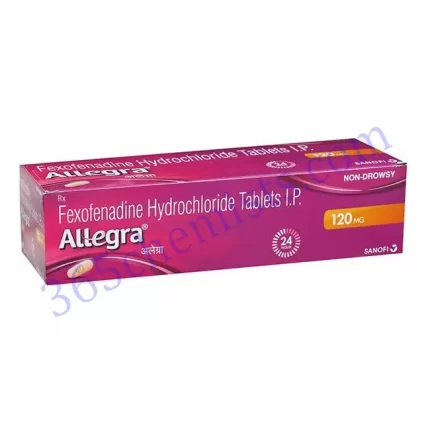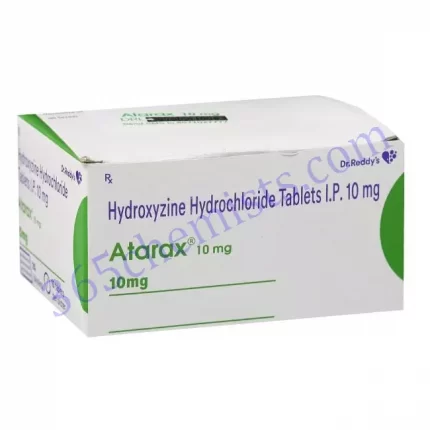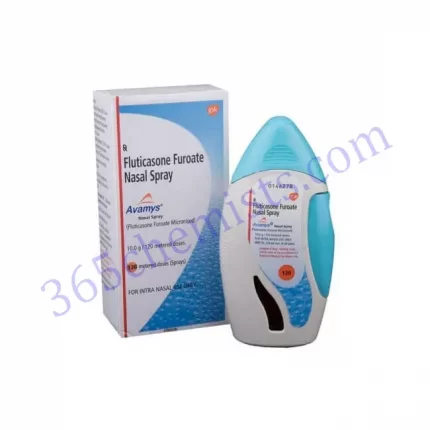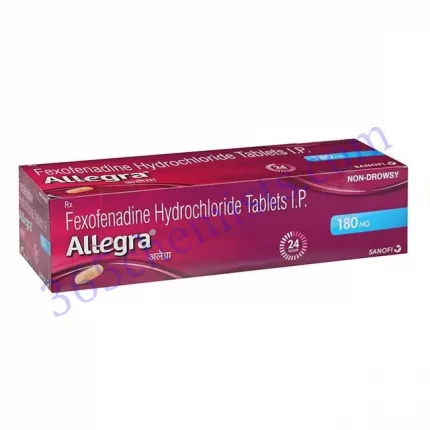Introduction
Cetirizine serves as the active component in Alerid 10mg Tablet, a widely used drug. It is a member of the antihistamine medication class and is generally used to treat allergy symptoms like runny nose, itching, and watery eyes. You’ll get a general overview of Alerid 10mg Tablet in this description, along with information on its applications, dosage, risks, and adverse effects.
The second-generation antihistamine cetirizine is present in Alerid 10mg Tablet. Histamine, a chemical produced by the body in response to an allergic reaction, is specifically blocked in order for it to function. Itching, sneezing, runny nose, and watery eyes are all common allergens symptoms that are brought on by histamine. Cetirizine aids in the treatment of these signs and symptoms as well as relief from allergic reactions by inhibiting the effects of histamine.
Benefits and Uses
Alerid 10mg Tablet is commonly prescribed for the treatment of various allergic conditions, including:
- Allergic rhinitis: Alerid 10mg Tablet can effectively relieve symptoms such as sneezing, itching, runny nose, and nasal congestion caused by allergic rhinitis, commonly known as hay fever.
- Allergic conjunctivitis: It can provide relief from itching, redness, and watery eyes associated with allergic conjunctivitis, an inflammation of the eye caused by allergies.
- Urticaria: Alerid 10mg Tablet can alleviate symptoms of urticaria, also known as hives, including itching and skin rashes.
- Pruritus: It may be prescribed to relieve itching caused by various skin conditions, such as eczema, dermatitis, or insect bites.
- Other allergic conditions: Alerid 10mg Tablet may also be used to manage symptoms related to other allergic conditions, as determined by a healthcare professional.
Dosage and Use
Alerid 10mg Tablets are to be ingested together with some water. Depending on the person and the severity of the symptoms, the dosage may change. Cetirizine can make some people drowsy, so it is typically advised to take one tablet per day, preferably in the evening. It is crucial to adhere to the directions given by your healthcare provider or the dose recommendations listed on the container.
The dosage of Alerid 10mg Tablet may change based on the patient’s age, weight, and medical condition. It’s crucial to adhere to the dose recommendations that your doctor has given you. The usual dosage recommendation is one tablet (10mg) once daily for adults and kids over the age of 12. Half a pill (5mg) once daily may be used for youngsters between the ages of 6 and 12. It is crucial to follow your doctor’s advice and not go above the suggested dose.
Mechanism of Action
Alerid 10mg Tablet’s primary ingredient, cetirizine, functions by preventing the body from producing histamine, which is a chemical that triggers allergic reactions. Cetirizine aids in the treatment of discomfort and allergy symptoms by preventing the effects of histamine.
Possible Side Effects
Alerid 10mg Tablet is often well accepted, although some people may encounter minor side effects, such as:
Fatigue or drowsiness: Cetirizine may make some people feel sleepy. Avoid engaging in tasks that call for mental clarity, such as operating heavy machinery or driving, until you have a better understanding of how the medicine affects you.
Precautions and Possible Side Effects
Although Alerid 10mg Tablet is typically tolerated well, it’s vital to be aware of any adverse effects that can occur. Drowsiness, dry mouth, headaches, and digestive issues are examples of typical side effects. It is advised to talk to a medical expert if these adverse effects intensify or persist.
Additionally, it’s critical to use Alerid 10mg Tablet with prudence. It is best to let your doctor know before beginning cetirizine if you have any pre-existing medical conditions or are on any other medications. It is advised to avoid activities that call for mental alertness until you are familiar with how cetirizine affects you because it might also make you drowsy.
The following safety measures must be taken into account before to consuming Alerid 10mg Tablet:
Any existing medical issues or allergies should be disclosed to your healthcare provider.
Before using this drug, check with your healthcare provider if you are pregnant or nursing.
Alerid 10mg Tablet may interfere with other medications, so it’s crucial to let your doctor know about all the prescription and non-prescription drugs, vitamins, herbal supplements, and dietary supplements you’re currently using.
Those who have liver or kidney problems could need dosage changes. Based on your unique condition, your healthcare provider will decide on the right dosage.
Conclusion:
Cetirizine-containing medications like Alerid 10mg Tablet are frequently used to treat allergy symptoms. Its antihistamine qualities aid in easing the symptoms of allergies, such as sneezing, runny nose, itching, and watery eyes. Despite the fact that it is generally safe and efficient, it is crucial to adhere to the suggested dosage and be mindful of any negative effects. For individualised guidance if you have any worries or inquiries, it is preferable to speak with a healthcare expert. The 10mg Alerid Tablet can help you manage allergy symptoms and enhance your general quality of life.



